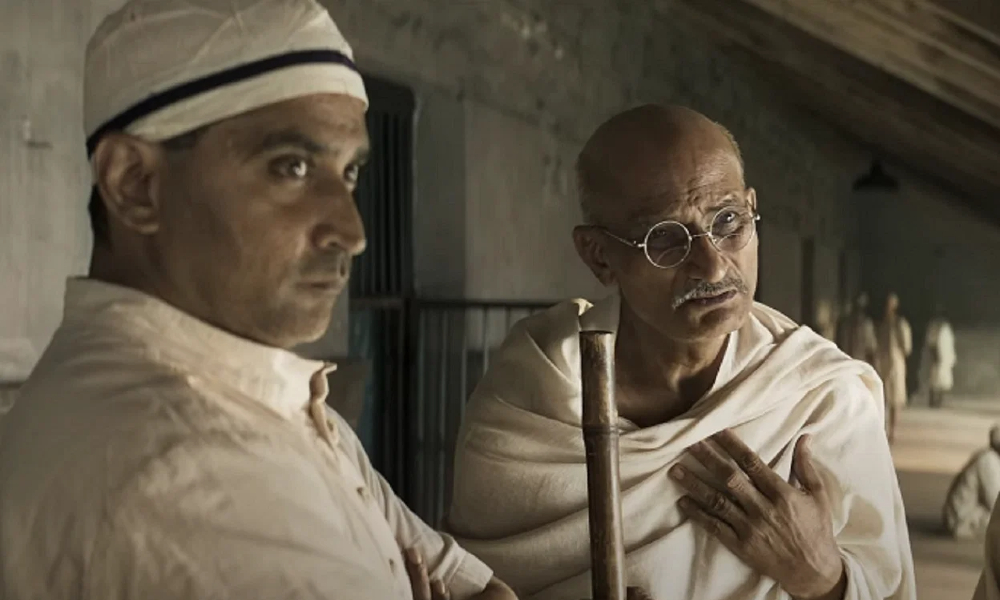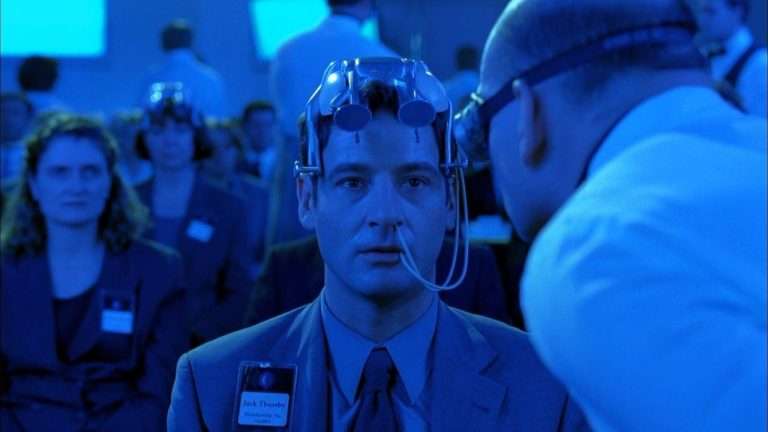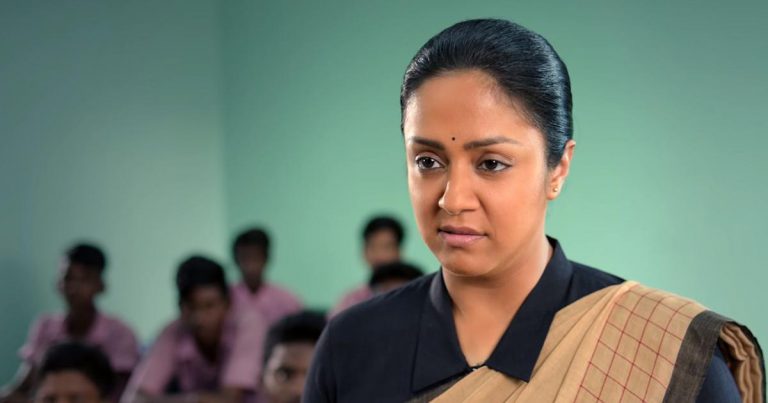Gandhi Godse – Ek Yudh (2023) Movie Review: On 30 January 1948, Mahatma Gandhi’s murder at the hands of a Hindu nationalist, Nathuram Godse, sent shockwaves through the newly formed democracy of India. According to a report by the Caravan, a schedule released for a theater festival in January of 2021 revealed a play named “Godse” to be played on the death anniversary of the Father of the Nation.
The play, which was supposed to be played in Varanasi, received heavy backlash from the civil society for glorifying Godse. This is one of the countless incidences to have been documented in India with the unprecedented rise of Hindutva-inspired violence. On top of that, the Bollywood mainstream space has increasingly been dominated by jingoist films or ones that surrender in compounding the nation’s status quo.
Naturally, I went into “Gandhi Godse – Ek Yudh,” fearing it would be another attempt to reclaim Godse’s image as a true nationalist. The film doesn’t fall into that trap. However, a handful of other things keep it from becoming an intriguing drama. The interpretation leads to an unbiased debate of the two conflicting ideologies the two men harnessed.
Based on Asghar Wajahat’s play, the film makes a turbulent revision back to Indian history by exploring one of the most fascinating on-paper concepts: what if Gandhi (played by Deepak Antani) survived the three bullets of the Hindu extremist (played by Chinmay Mandlekar)?
Would that lead to a healthy discourse between the two and an unbiased debate of the conflicting ideologies? Since Gandhi stands for unity, and the same is translated on screen when he’s shown as a figure who wants peace to prevail at any cost.
On the other hand, Godse stands for creating an ‘Akhand Hindu Rashtra,’ spouting out how he feels a specific community disrupts the peace. The latter also thinks that the reason behind Gandhi fasting to his death is explanatory of why India had to bend its knees in front of the neighboring country.
The Bhagwad Gita becomes a motif in how the two men interpret the religious book differently; one teaches the other how it is to love, while the other teaches the Mahatma how it’s important to let others love. Unfortunately, the film laboriously pushes itself through these interesting points of contention to reach its somewhat effective climatic conclusion.
Godse languishes in prison after the act he’s committed. Having earned a new lease on life, Gandhi forgives the man for his crime and thus reinvents himself. That curious exercise allows one to speculate on how differently post-independence India might have been treated if it had remained under the influence of the man who gave rise to it.
But by watering down the political and social intricacies of the time, the film oversimplifies everything into black or white. The screenplay fundamentally ignores how oppression operates systematically, which is further translated on screen rather unimaginatively through the sloppy use of brown-yellowish colored grading and sets that resemble cardboard cutouts from a play.

The one-noted and soap opera-like love story between a constantly weeping Sushma (played by Tanisha Santoshi), who wants to help Gandhi serve the nation, and Naren (played by Anuj Saini), her boyfriend, becomes a side plot that feels wholly disconnected from the film’s world. The actress especially delivers impassioned lines as if rattling off a multiplication table in school. In fact, the only goal of this couple is to highlight Gandhi’s flaws in an attempt to make him even with Godse because this film wants both of them to preach and learn.
Early in the film, one of the texts acknowledges the acclaimed director Govind Nihalani as a potential mentor to Santoshi. Throughout the film, I kept thinking about how well Nihalani portrayed the partition’s turbulent times on screen in his 1988 mini-series, “Tamas.”
The almost five-hour-long limited series (which was later also released as a feature film), more than anything, was about the genesis of hatred. Despite focusing on multiple characters across various beliefs, Nihalani had rooted the show in an unrestrained gloomy reality.
The main task of dealing with such a subject is that the setting should not only prevail to evoke a sense of place, but it should also predominate long enough for the viewers to reflect deeply on the Democratic republic in which we have been blessed to grow up. Santoshi’s films soak in the influence of such expressionist cinema that was most evident through his work in the 90s.
By carrying over the same method, combined with a naive outlook towards deeply complex ideologies, he renders the two men at the film’s center into one-dimensional ideologues. In doing so, the film blindly steps over how, with the seed of a new India, there was also the simultaneous genesis of unbridled religious bigotry. The latter surely has predominated in the Indian conscience enough to justify the killing of a Mahatma by hyper-nationalists, even after all these years later.
You diminish both Hindustan and Hinduism, Gandhi tells Godse at one point in the film while making the latter realize the nation’s rich cultural inclusivity. In these final 20 minutes of the film, the screenplay isn’t just flattened out about being about these two men’s contrasting political positions. Most of the film merely shrugs off their stance as being a difference of temperament that could be reasoned out through dialogue.
Godse contemplates this in silence, only to later see how Gandhi plays with the power dynamics of people around him. It’s a message that may seem gentle enough even in these polarizing times. But it doesn’t quite work because the movie conflates prejudice with ideology.
No matter how much we would want to look at a film by separating it from the current political subtext, how do you convince someone in the face of the growing Hindutva tide that if given a choice, Nathuram Godse wouldn’t have fired at Gandhi, let alone save him from another person? Certainly not in a country that sees mass celebrations carried out on Martyr’s Day.





